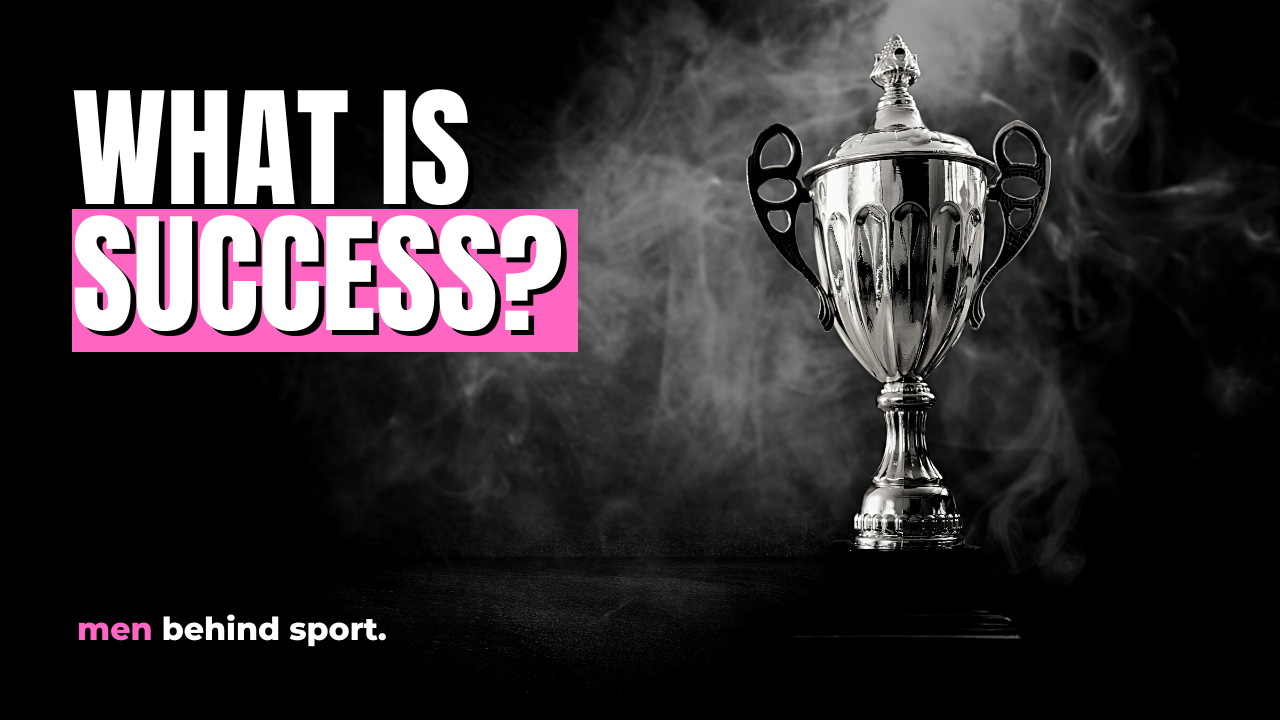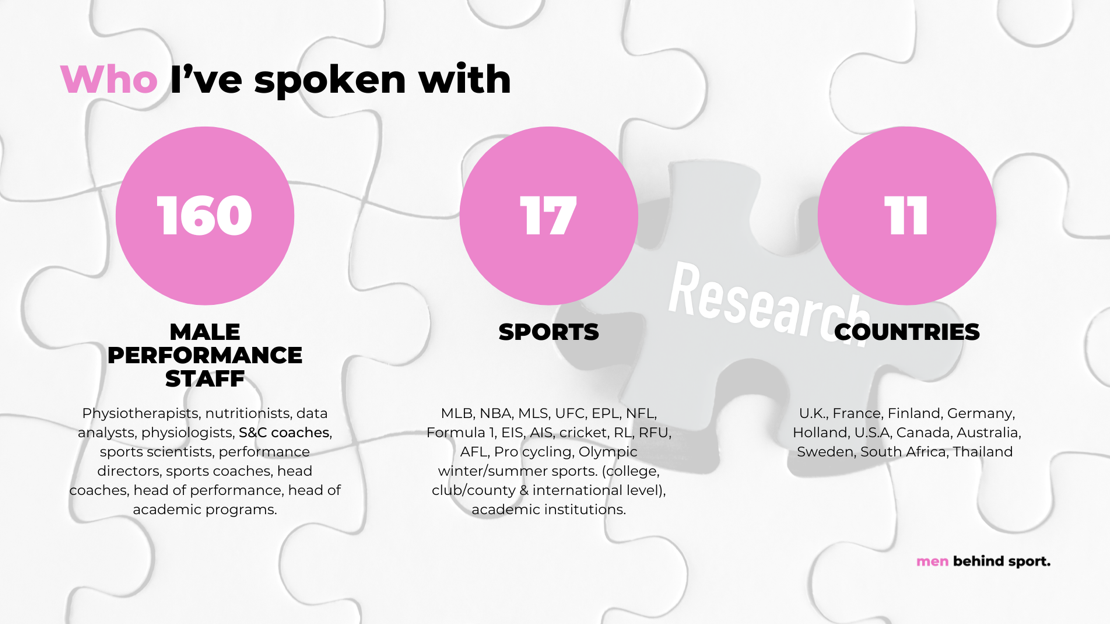
What are Your Markers of Success?
Nov 13, 2023When I reflect on the research I've been doing for nearly 2 years, it really stands out to me the diversity of who I've actually spoken with.

It's important to highlight that I have also sought out advice from sports psychologists and psychotherapists within my network for 2 reasons:
- To make sure I'm staying appropriate within my current skillset of what I'm doing here at Men Behind Sport.
- To hear their professional opinion of what I'm finding.
Over the coming posts, I'm going to share with you in more detail the key themes that have stood out to me from this process, with suggestions in how to detangle yourself from them.
Theme 1) Markers of Success
The first common theme is based on the recognition that many I've interviewed have achieved a great deal of "success" within their career in high-performance sport.
However, this achievement is leaving many with a sense of emptiness, unfulfilment and a sense of confusion.
There appears to be a separation between success and happiness. Of course, each of these is highly subjective, yet without true reflection, there seems to be a default aim to focus on what other people perceive as success.
Whether that's in academic circles, practitioner peer groups, or from the social validation gained. Happiness is assumed will occur when "success" is achieved. Yet it rarely does work out that way - for the men I work with, nor did it for me in my career.
Here are 2 real examples:
Lead Performance Coach
"I had a tough time after athletes I supported achieved Olympic success. I felt directionless and aimless, in my mind I thought that having an athlete winning gold was the pinnacle of what we do and why we do it - but after they had won I was waiting for some kind of feeling of achievement to hit and it just never did."
Lead Physiotherapist
"I am very successful in my career and financially but I don't feel the happiness I expected, I have complained a great deal about my working conditions but have come to the realisation that maybe my problems are not my work - but within myself."
My Own Experience
You'll know by now that I'm very open about how I struggled so hard to prove myself and my "success" when I was coaching in Olympic sport.
I did this because my definition of a great coach was so skewed towards results, the status of prestigious jobs and seniority.
I'd assigned such value and meaning to be able to spout off the latest research or offer evidence to support "my" athletes.
Yet these were areas I felt I always fell short of, which played perfectly into my, unknown at the time, low self-esteem.
Little did I know at the time that it didn't matter what role I was in or what I knew until I became aware of looking at myself as a man and the places I needed to heal.
Taking Personal Responsibility
Our personal sides are rarely discussed within our professional roles in elite sport. But whether we like it or not, they sit just below the surface and inform our every thought, feeling & action.
Humans are fallible… all of us… with our past experiences laying down operating systems that influence our present until we learn to detangle ourselves.
This is why I like to use the analogy of the Needs Analysis and turn that process in on ourselves
The first layer to this process is asking yourself the question:
What do I think?
How do you answer these questions:
- What is success for you?
- Is that your definition
- When will you know you've achieved it?
- What does loyalty mean to you?
- What sacrifices are you willing to make?
- And for how long?
If you can’t define that clearly then you’re in for a rough ride.
"Success is liking yourself, liking what you do, and liking how you do it."
Maya Angelou (American civil rights activist)



